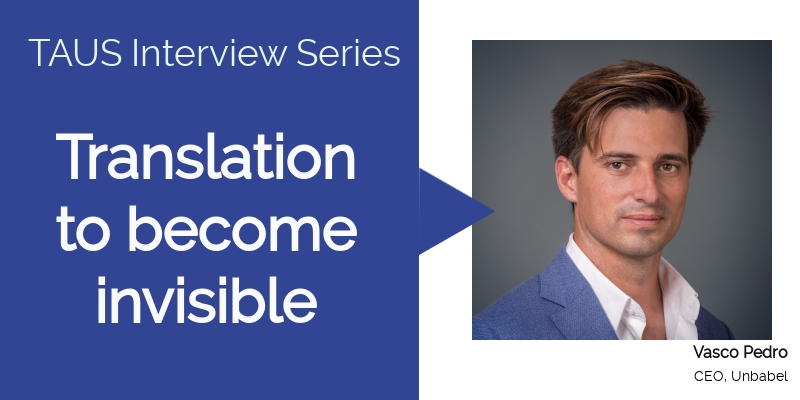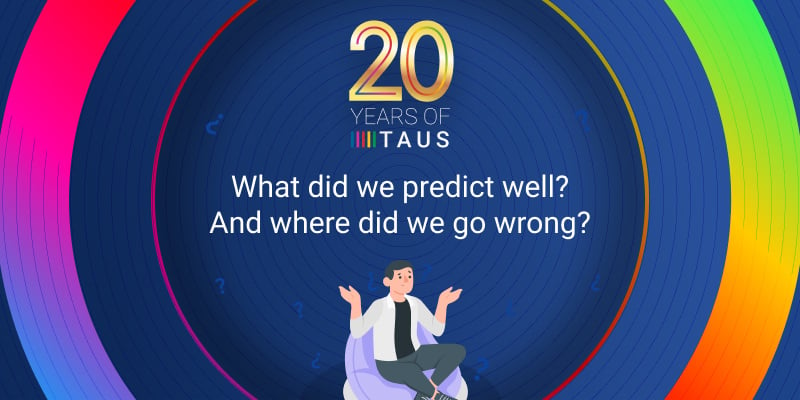Beyond Translation to Service Augmentation: Unbabel at Work
17/12/2018

In efforts to fill the gaps in translation ecosystem, TAUS continues to interview industry leaders. This time: Vasco Pedro of Unbabel. For Vasco Pedro, the implicit destiny of translation for buyers is for it “to become invisible.” This will inevitable require service augmentation.
Author

Long-time European language technology journalist, consultant, analyst and adviser.
Related Articles
03/06/2025
Discover how AI and innovation are transforming the localization industry and challenging traditional methods.
21/11/2024
Celebrating the 20th anniversary of TAUS this month caused the team to look back at the predictions and outcomes so far. What have we achieved? What went wrong?
 by Dace Dzeguze
by Dace Dzeguze27/11/2023
Explore the fascinating journey of Lisa Vasileva, a Machine Learning Engineer at TAUS, as she transitions from a professional translator to the field of Natural Language Processing (NLP).



